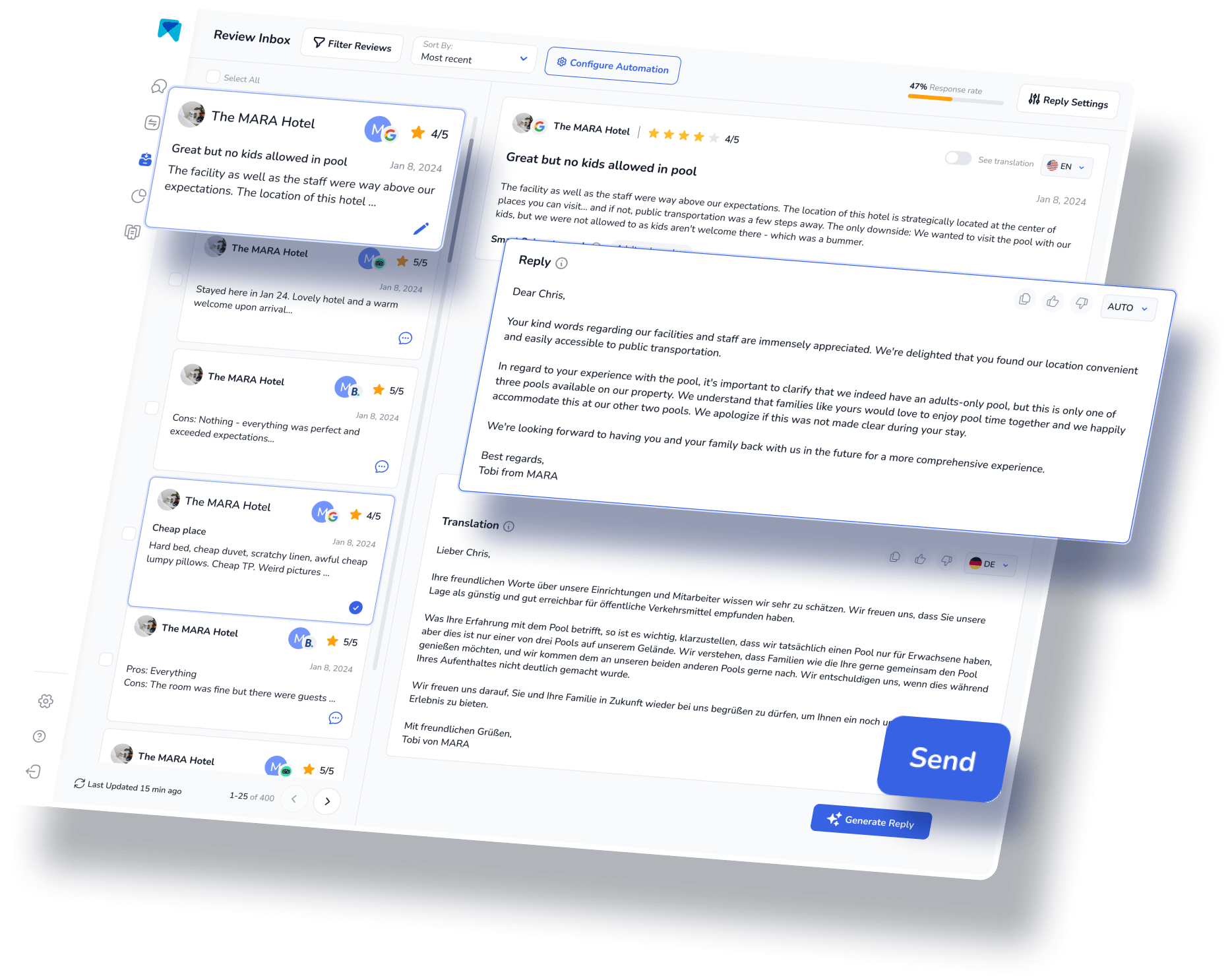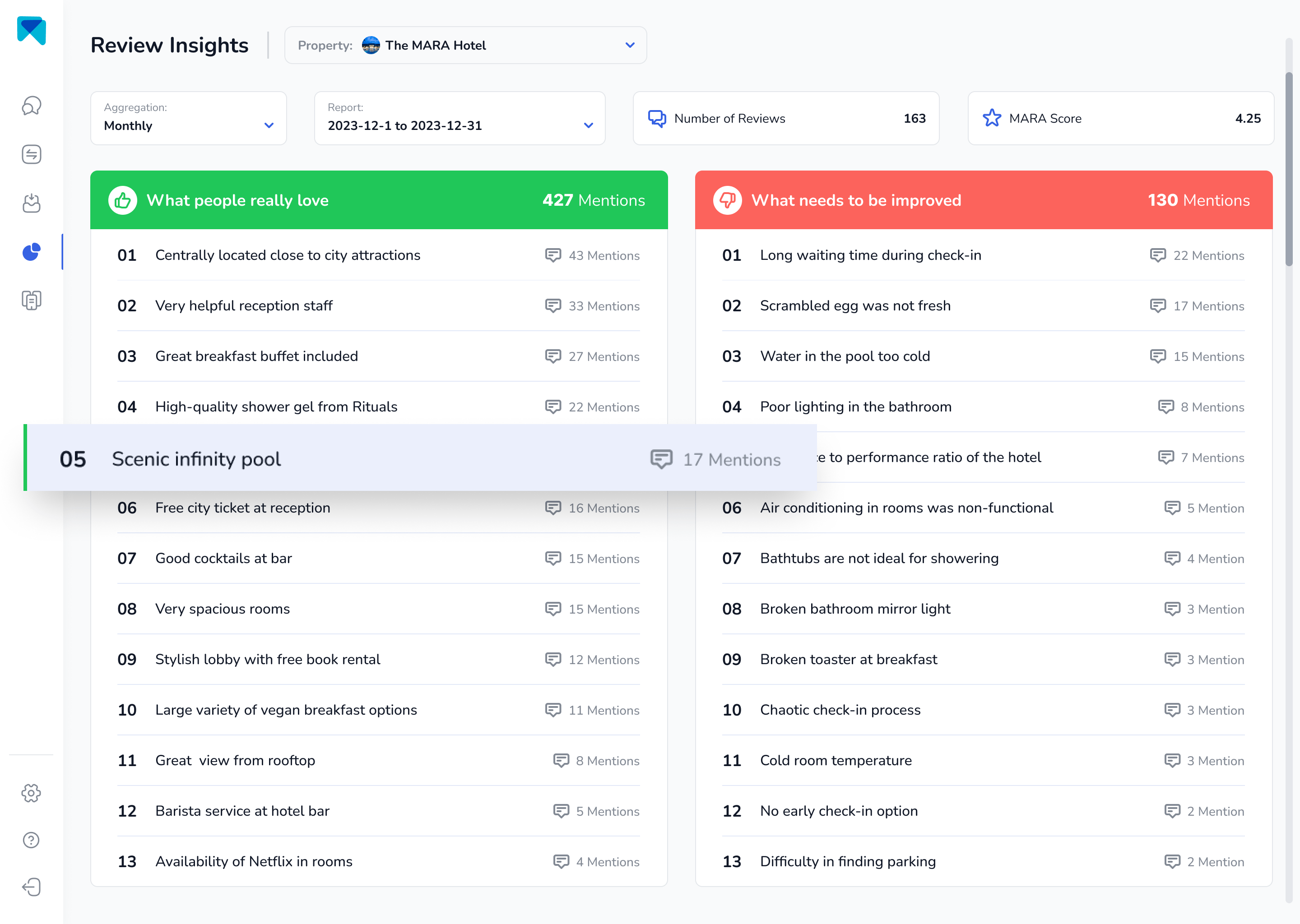As the world emerges from the shadows of the COVID-19 pandemic, there's one thing that almost all countries are currently suffering from–staff shortage in the hospitality industry. The surge in demand for travel and leisure has collided with a diminishing workforce, creating an alarming imbalance that has been affecting small to large names in the industry.
In this article, we delve into the meaning and scope of staff shortage in hospitality, the reasons for such phenomenon, and potential ramifications. Through this, businesses can shield their company from experiencing the repercussions of the crisis.
What is the meaning of staff shortage in hospitality?
Staff shortage in the hospitality industry denotes the persistent challenge of insufficient qualified personnel to meet the demands of the sector. This deficit impacts diverse roles within hospitality establishments, including hotels, restaurants, and other service-oriented businesses, resulting in operational difficulties and potential effects on customer satisfaction.
While it may appear to be merely a matter of quantity—meaning not having enough personnel—it also pertains to quality. Significant changes, such as personalization, self-check-in, AI usage, and more, have swept through the hospitality industry, posing challenges for some staff to adapt and keep pace. This phenomenon gives a sense of stagnation among companies, hindering them from scaling and keeping up with the market.
{{blog-cta="/features/product-updates"}}
Is there a shortage of hospitality staff? Statistics about staff shortage
Unfortunately, yes. There really is a staff shortage in the hospitality industry. Here are some regional and global figures that verify this:

United States of America:
- More than 87% of hotels experience staffing shortages.
- 36% of hotels claim they have a severe staffing shortage.
- Hotel chains are filling up at least 7-9 positions per property every month.
- There are more than 100,000 job vacancies in the hospitality industry in the first quarter of 2023 alone.
- The most critical staffing need is housekeeping, with 40% citing it as their top hiring need.

United Kingdom and EU:
- After Brexit, the hospitality vacancies surged by 72%.
- The UK hospitality industry says their current staff shortage is 48% higher than pre-Covid.
- During the second quarter of 2023 alone, there are over 132,000 available roles in the region.
- There's a 4,000 decrease in roles filled in the food industry during 2023.
- The European Union experienced a whopping 11% staff shortage with only 1 in every 9 job vacancies being filled out.

Global Perspective: Beyond the U.S. and the UK
- The global hospitality market size is expected to expand at a CAGR of 10.62%, reaching USD 7239000.0 million by 2027.
- Despite this major growth, there are over 1.2 million vacancies in the hospitality industry around the world.
- 6% of employees within the hospitality industry leave every month.
- 8.5% of pub workers, 6% of restaurant employees, and 5.2% of hotel staff leave their companies every month.
- The Bureau of Labor Statistics concludes that turnover in the hospitality industry hovers around 70-80% annually.
The hospitality industry faces a critical and widespread staff shortage, impacting hotels, restaurants, and other service-oriented establishments globally. These statistics paint a clear picture of the challenges, emphasizing the urgent need for strategic and innovative solutions to address this pervasive issue and ensure the sustained growth and recovery of the industry.
Why is there a shortage of staff in the hospitality industry?
Staff shortage is a common phenomenon among industries. However, there are some unique reasons behind the recent shortage in the hospitality industry:
a. Impact of COVID-19 pandemic
A study from UK hospitality shows that the country's hospitality sector has lost $156.3 billion in sales during the pandemic, resulting in millions of employees being laid off.
The uncertainties arising from the pandemic prompted many workers to exit the hospitality sector. Changes in work preferences, including a shift to more stable and less volatile industries, have contributed to the talent drain.
b. Brexit fallout in the UK
Brexit has had a profound effect on the UK hospitality industry. Changes in visa requirements and difficulties in obtaining visas have hindered the influx of European Union workers.
c. Visa challenges
Stringent visa requirements post-Brexit have made it challenging for foreign workers to fill crucial roles in the hospitality sector. The need for skilled worker visas, often requiring a specific job offer at a certain pay scale, has limited the pool of available talent.

d. Global talent migration
Workers have sought opportunities in industries perceived to offer more stability and growth, contributing to a drain in hospitality talent. The allure of industries with regular working hours and less dependence on in-person interactions has led to workforce reallocation.
e. Changing work preferences
Shifting preferences among workers towards industries with better work-life balance and more predictable schedules have impacted the hospitality sector. The industry's historically demanding hours and work conditions have become less appealing to potential employees.
f. Industry perception and job security
The perception of job insecurity in the hospitality sector, exacerbated by pandemic-related uncertainties, has dissuaded potential candidates. Workers may be seeking roles perceived as more secure and less vulnerable to external disruptions.
What can a shortage of staff cause?
The shortage of staff in the hospitality industry can have various negative consequences, including:
a. Decreased service quality
The insufficiency of staff can significantly compromise the quality of service provided to guests.
As establishments struggle to meet staffing requirements, there's a heightened risk of delayed service, increased waiting times, and a general decline in the level of customer service. This can have a lasting impact on the overall guest experience, potentially leading to dissatisfaction and negative reviews.
b. Operational challenges
The ripple effect of staff shortages is felt operationally, manifesting in overworked existing staff.
With fewer hands to share the workload, employees may find themselves stretched thin, encountering increased stress levels and heightened pressure to meet service demands. This scenario often leads to burnout, contributing to lower morale among the remaining workforce. The toll on staff well-being can further exacerbate retention challenges, creating a cycle of operational strain.

d. Revenue loss
The inability to adequately achieve customer satisfaction due to staff shortages translates into missed revenue opportunities. With fewer personnel to cater to guests, hospitality establishments may need to limit services, reduce operating hours, or even turn away potential customers. This not only impacts immediate revenue but can also have long-term consequences, as dissatisfied or inconvenienced patrons might choose alternative venues for future visits.
The financial ramifications of revenue loss can be substantial, affecting the overall financial health of businesses in the hospitality sector.
How do you deal with staff shortages in the hospitality industry?
While staff shortages are a serious issue, fortunately, there are strategies on how you can maintain a high productivity rate within your team. Here are some of them:
a. Use AI to increase efficiency
The integration of Artificial Intelligence (AI) can enhance the operational efficiency of businesses within the hospitality industry. AI-driven chatbots and virtual assistants streamline customer interactions, providing instant responses to inquiries and facilitating seamless bookings. Robotic process automation optimizes backend operations, automating routine tasks such as inventory management and order processing. Moreover, AI-powered predictive analytics aids in demand forecasting, allowing hotels to optimize staffing levels based on anticipated needs.
b. Create a dynamic working environment
Crafting a dynamic working environment is essential to prevent staff shortages. Implementing flexible schedules and offering remote work options, where feasible, can enhance employee satisfaction. Additionally, fostering a positive workplace culture contributes to staff retention. An activity-based setup, where employees have the flexibility to choose tasks based on their strengths and preferences, boosts employee productivity and retention by 13%.
By embracing a dynamic working environment, hospitality businesses can attract and retain talent, particularly among the younger workforce seeking more flexible and fulfilling work arrangements.
c. Create job networks across properties
Establishing job networks across different properties within a hospitality brand can be a strategic move to optimize workforce resources. This involves creating a system where staff can seamlessly transition or share responsibilities between properties based on demand and skillsets.
This interconnected approach not only addresses shortages in specific locations but also provides employees with opportunities for diverse experiences, fostering professional growth and job satisfaction.
d. Manage customer expectations
Effectively managing customer expectations is crucial during periods of staff shortages. Clear communication regarding potential delays or service adjustments helps set realistic expectations, preventing an onslaught of guest complaints.
Proactive measures, such as providing estimated wait times and transparent information, can mitigate customer dissatisfaction. Leveraging technology, like automated messaging systems, can assist in keeping customers informed and satisfied despite potential staffing challenges.
e. Offer competitive compensation and benefits
Competitive compensation and benefits remain integral in attracting and retaining top talent in the hospitality industry. Conducting regular market analyses to ensure salaries align with industry standards is essential. Offering attractive benefits packages, including health insurance, flexible work arrangements, and employee recognition programs, enhances the overall compensation package.
By prioritizing competitive compensation, businesses can position themselves as employers of choice, addressing the root causes of staff shortages and promoting sustained workforce stability.
{{blog-cta="/features/product-updates"}}
Streamline your online reputation management and boost your staff's productivity with MARA.
Responding to online reviews may seem like a simple task, but it can be daunting for your team, especially when juggling it with other on-site activities.
With this in mind, empower them with an AI Review Assistant such as MARA. This intuitive tool is designed to ease your Online Reputation Management process, making it more efficient, personalized, and time-saving. It offers the best and most personalized AI for responding to and analyzing your guest reviews.
Centralized Review Inbox
Review management can be overwhelming for staff, especially considering that most hotels and brands now have multiple listings.
One of the key features of this tool is the Review Inbox. Your review inbox makes responding to reviews as simple as hitting "Generate reply" and clicking "Send". The Review Inbox connects to multiple review sources, including Google, Booking.com, and Tripadvisor, giving you a panoramic view of all your reviews. And you can even configure review response automation: Why not allow MARA to automatically respond to simple reviews, like 5-star Google reviews with no text, ensuring you never miss a review? Daily notifications about new reviews keep you updated and in control.

Simplified Review Analytics
Review Analytics are essential for hotels. However, extracting customer insights from reviews requires expertise and skills.
To help your staff easily understand and analyze the multitude of reviews, the Review Assistant also incorporates Review Analytics. This provides actionable, easy-to-understand insights that are tailored exclusively to your business. With MARA, you can quickly get the gist of all your reviews without needing to read each one. The analysis is so detailed that you can find out about specific issues like "water in the pool is too cold" or "lack of vegan breakfast option”. These insights help optimize guest experience without requiring you to be a data expert.

Streamlined Review Automation
Automation is the key to empowering hotel staff and relieving them from mundane tasks. After gaining trust in your personal AI Review Assistant, your staff can go on autopilot and create automation rules. This way, you can specify which reviews should be replied by the AI directly with no additional approval. With the configuration below, all Google reviews with no text and a star rating of 4 and above are answered automatically.

The most personal response AI
MARA's AI isn't just about efficiency; it's about personalization too. The Brand Voice feature allows the AI to adapt to your tone, making sure your responses sound authentically you. Plus, with Smart Snippets, you can "teach" the AI how to respond to recurring praises or complaints. Your AI then incorporates this information into its responses, but always with different words, providing more personalized, relevant replies.
This review response assistant has quickly become a game-changer for over 2000 customers. Its promising capacity to elevate your overall rating, amplify response rates, glean insights from customer feedback and economize both time and money, is the reason behind its growing popularity.
Final Thought
To address staff shortages in the hospitality industry, a multifaceted approach combining technological innovation, supportive work environments, and strategic HR practices is essential. By implementing these measures, businesses can effectively navigate current challenges and build a resilient and skilled workforce for the future. Moreover, managing online reviews need not be overwhelming. With the right software like our AI Review Assistant, MARA, you can streamline the process, personalize responses, and extract valuable insights from reviews. MARA is free for testing, requires no credit card, and can be fully operational in less than five minutes.
This post is part of our hero content series on “Hotel Guest Experience: A Deep Dive into Creating Memorable Stays" and "The Complete Hotel Management Guide: From Operations to Guest Experience”
Frequently Asked Questions:
The hospitality staffing shortage is the ongoing issue of not having enough qualified personnel to meet industry demands, causing operational challenges and potential impacts on customer satisfaction.
Staff shortages in hospitality result in lower service quality, operational difficulties, and revenue loss. Consequences include delayed service, increased wait times, overworked staff, and missed revenue opportunities due to service limitations.
Address staff shortages in hospitality by using AI for efficiency, creating a dynamic work environment, establishing job networks, managing customer expectations, and providing competitive compensation. These measures enhance operational efficiency, boost employee satisfaction, optimize workforce resources, and attract top talent.
Staff shortages in hospitality lead to reduced service quality, operational challenges, and revenue loss. Consequences include compromised guest experiences, staff burnout, and financial setbacks for businesses.
Factors contributing to hospitality staff shortages include the COVID-19 impact, Brexit affecting visa requirements in the UK, global talent migration to more stable industries, changing work preferences for better balance, and job security concerns in the industry. These factors make it difficult for establishments to fill crucial roles.








































-min.avif)
